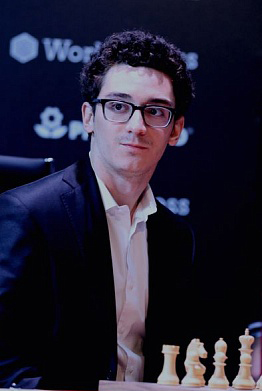
The US Chess Championship is an invitational tournament organized by the United States Chess Federation to determine the country's chess champion. It is the oldest national chess tournament. The event originated as a challenge match in 1845, but the champion has been decided by tournament play under the auspices of the USCF since 1936. The tournament has fluctuated between a round-robin tournament and a Swiss system. From 1999 to 2006, the championship was sponsored and organized by the Seattle Chess Foundation and featured a larger body of competitors, made possible by the change to a Swiss-style format. After the Foundation withdrew its sponsorship, the 2007 and 2008 events were held in Stillwater, Oklahoma, still as a Swiss system, under tournament director Frank K. Berry. The Saint Louis Chess Club has hosted the championship since 2009. Since 2014, the championship has used a round-robin format. The event is often a Zonal tournament for the United States Chess Federation, providing qualifier spots to the Chess World Cup.

Jackson Whipps Showalter was a five-time U.S. Chess Champion: 1890, 1892, 1892–1894, 1895–96 and 1906–1909.
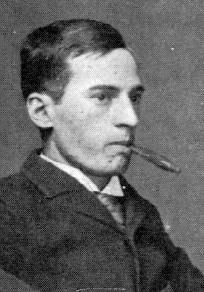
Harry Nelson Pillsbury was a leading American chess player. At the age of 22, he won the Hastings 1895 chess tournament, one of the strongest tournaments of the time, but his illness and early death prevented him from challenging for the World Chess Championship.

Dawid Markelowicz Janowski was a Polish chess player. Several opening variations are named after Janowski.
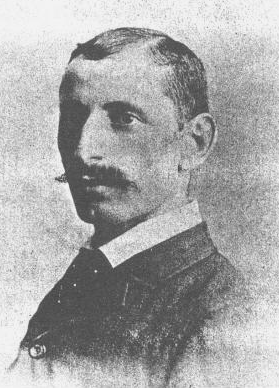
Samuel or Salomon Lipschütz was a chess player and author. He was chess champion of the United States from 1892 to 1894.

George Henry Mackenzie was a Scottish-born American chess master.

Johann Nepomuk Berger was an Austrian chess master, theorist, endgame study composer, author and editor.

William Henry Krause Pollock was an English chess master, and a surgeon.
The American Chess Congress was a series of chess tournaments held in the United States, a predecessor to the current U.S. Chess Championship. It had nine editions, the first played in October 1857 and the last in August 1923.
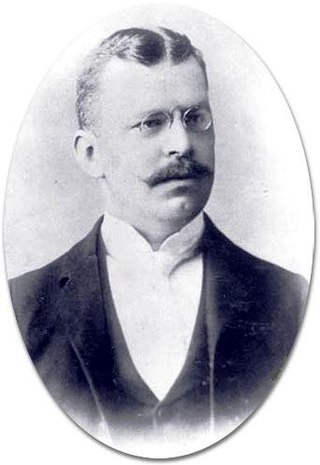
Albert Beauregard Hodges was an American chess master who was born in Nashville, Tennessee.

Louis Uedemann was an American chess master.

Louis R. Eisenberg was a Ukrainian-American chess master.
David Graham Baird was an American chess master. He was the brother of John Washington Baird, who was also an American chess master. A writer in the New York Times, describing the players in the Sixth American Chess Congress (1889), portrayed Baird and his brother as follows:
Of the Baird brothers, David G. is the better player by far. He plays with characteristic Scotch carefulness, for he is of Scotch descent. Of medium height, he is inclined to stoutness, and is of light complexion. His brother John W. is very thin, although he looks like his brother in the face. He was one of the slowest players in the tournament.
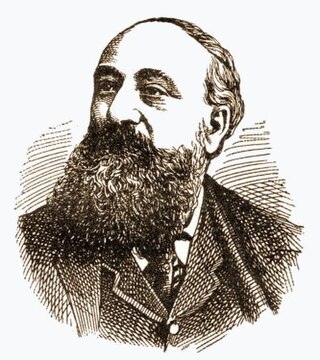
George Hatfeild Dingley Gossip was an American-English chess master and writer. He competed in chess tournaments between 1870 and 1895, playing against most of the world's leading players, but with only modest success. The writer G. H. Diggle calls him "the King of Wooden Spoonists" because he usually finished last in strong tournaments.
Charles Moehle (Möhle) was an American chess master.
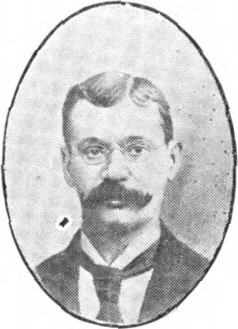
Emil Kemény was a Hungarian–American chess master, editor and publisher.
The Anglo-American cable chess matches were a series of yearly chess matches between teams from the United States and Great Britain conducted over transatlantic cable from 1896 to 1911, except for the three-year gap of 1904 to 1906 when no matches were held. This series was closely contested, with each team winning six matches and one match being drawn. The individual game total over the series was also even. The series ended when Great Britain won their third consecutive match, thereby earning permanent custody of the silver cup provided by Sir George Newnes. There were other cable matches held in the late 19th and early 20th centuries, but this series is the most well-known.

The 1904 Cambridge Springs International Chess Congress was the first major international chess tournament in America in the twentieth century. It featured the participation of World Champion Emanuel Lasker, who had not played a tournament since 1900 and would not play again until 1909. After the tournament Lasker moved to America and started publishing Lasker's Chess Magazine, which ran from 1904 to 1907. However, that was not the only chess magazine spawned by the tournament. The Daily Bulletins produced by Hermann Helms proved so popular that Helms started the American Chess Bulletin as a direct consequence of the tournament. Volume 1, Issue 1 of the magazine was devoted to Cambridge Springs. Helms was somewhat more successful than Lasker as a publisher and American Chess Bulletin would be edited and published by Helms from 1904 until his death in 1963. The surprising upset victory of Frank Marshall marked his rise to prominence in American chess and he would eventually reign as champion of the United States for twenty-six years.

Nellie Love Marshall Showalter was an American women's chess champion, and wife of the U.S. chess champion Jackson Showalter.














